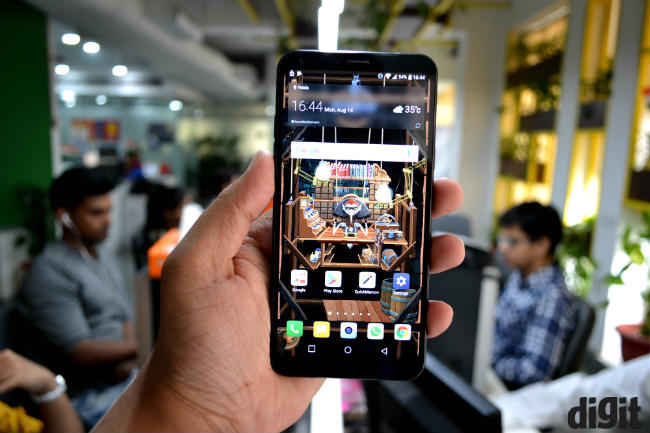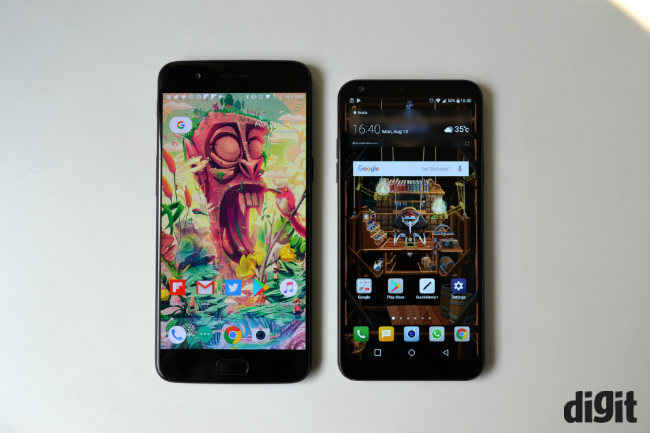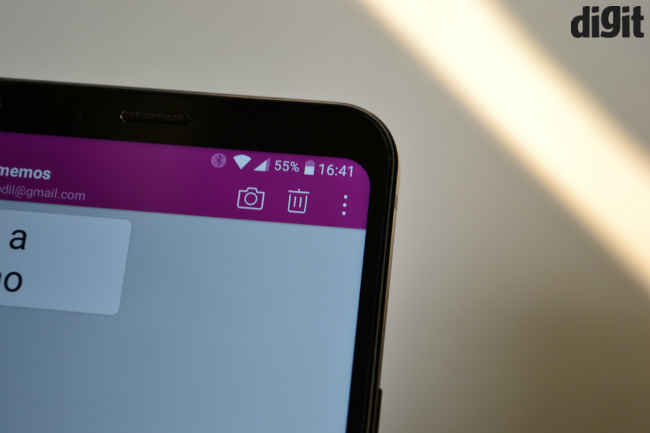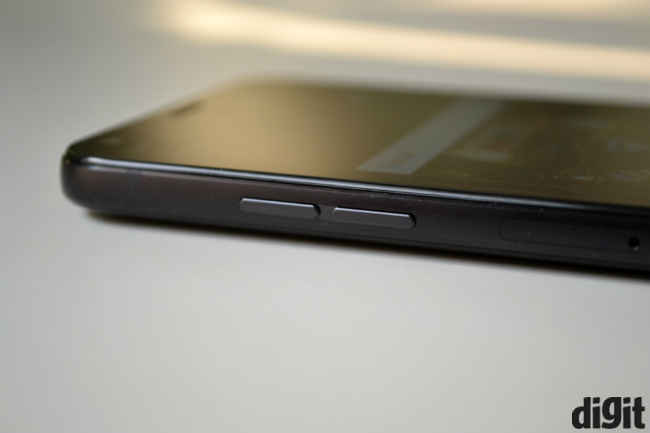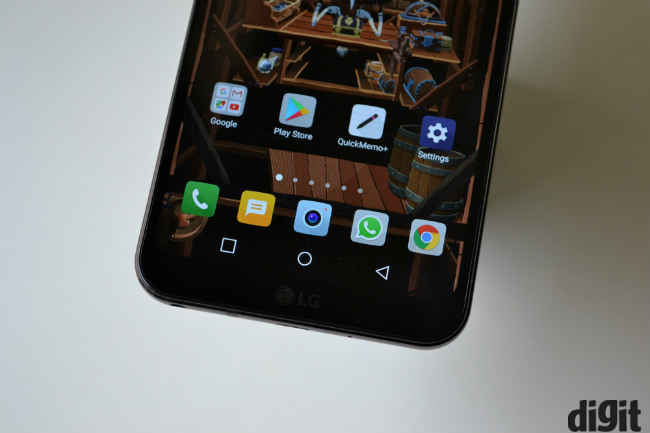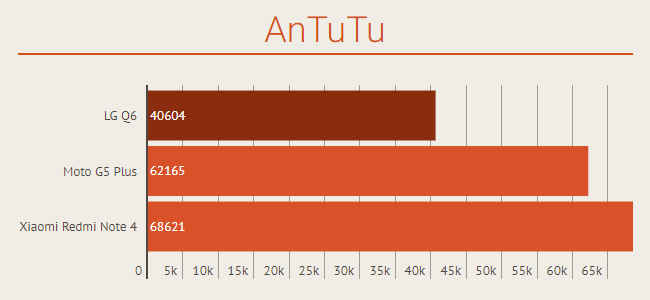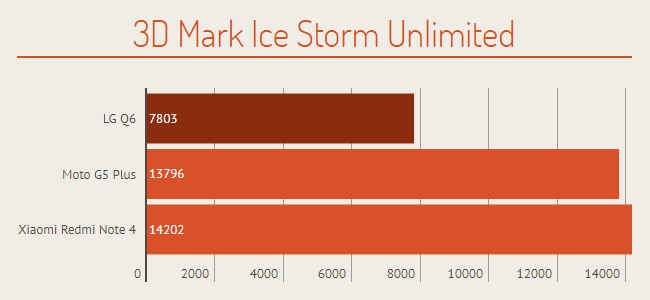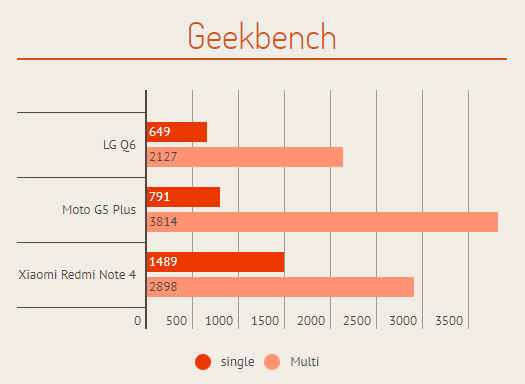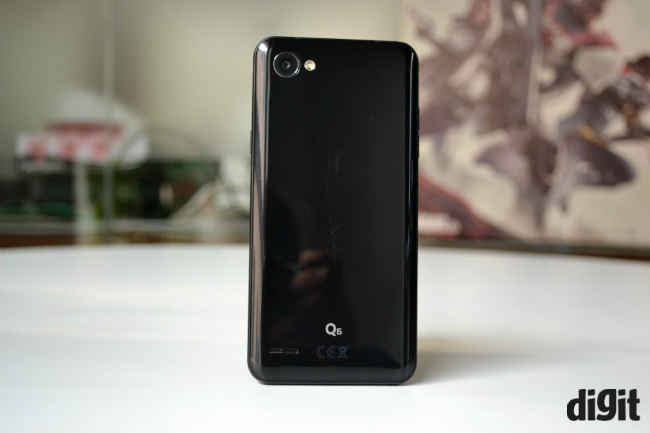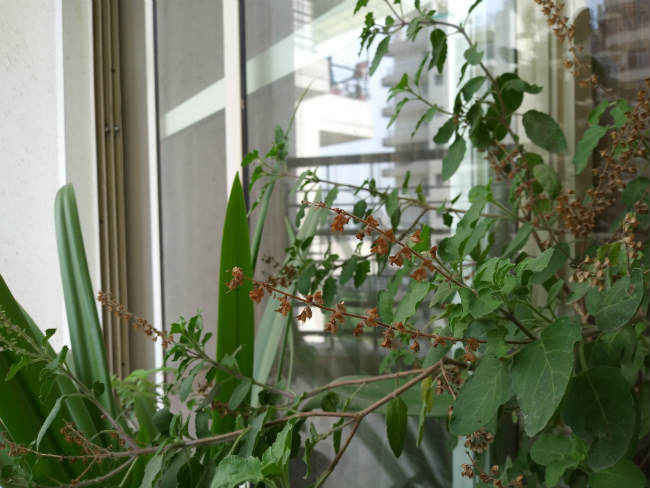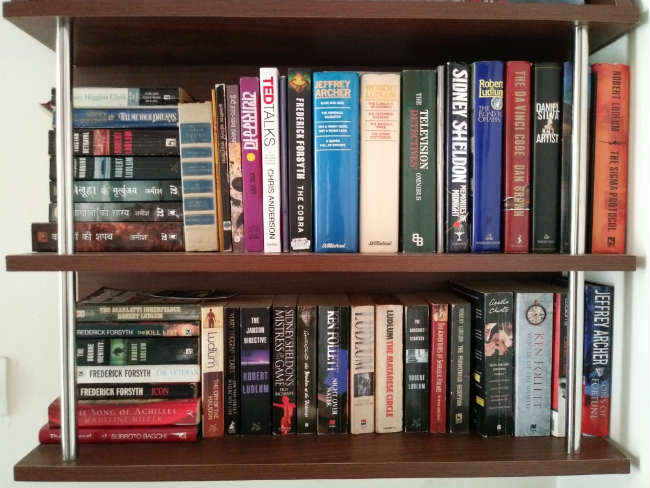LG Q6 Review : Radical, but not revolutionary
The LG Q6 is a phone with the Redmi 4’s hardware inside the LG G6’s body. It’s meant for those who put more stock in design than internal hardware specs.
Amidst this horde of identicals LG has brought the Q6 to India, which I believe is amongst the best looking budget smartphone of all time. It carries the same Full Vision display we enjoyed on the LG G6, that made it a conversation starter every time I took the phone out of my pocket. However, as they say, “looks aren't everything”. To find out more about the phone, I dug deeper and here is what I found.
Display and Design
First and foremost I must address the display on this device. I believe most of you would agree with me that the LG Q6 is a looker. Kudos to LG for bringing their flagship tech to the budget segment, reaching a wider audience range than flagships do. As you must have heard, LG calls this a Full Vision display. Essentially, the display is a little taller than the standard 1080p resolution. It rocks a 2160 x 1080p resolution, which takes the aspect ratio from the standard 16:9 to 18:9. In tandem, the top and bottom bezels have been drastically minimised, which adds to the phone’s unique look. Moreover, the Full Vision display not only makes the phone look good, but makes the whole footprint smaller. This means, the LG Q6 with its 5.5-inch display, is just a hair bigger than the 5-inch Lenovo Z2 Plus.
(L-R) OnePlus 5, LG Q6 – both have 5.5-inch displays
As for the display quality, it is a top notch panel and can easily be regarded as one of the best in the category. Viewing angles are very good and the colour saturation, though a bit warm, is favourable for viewing all kinds of content. It is easily viewable outdoors and under direct sunlight, and with luminance readings of 605 lux, offers ample brightness as well. The display has Gorilla Glass 3 protection on top for scratch protection and the touch response is quite good.
What I did find a little disappointing is the fact that not a lot of apps can make use of the extra screen space made available on this phone. However, LG is a still an early adopter of the screen resolution and as more phones join the bunch, developers will also start implementing the screen resolution in their respective apps.
Complementing the display is the overall design of the device, which makes the Q6 look like a miniaturised version of the G6. the metal side rails, along with the glossy plastic back give the phone an upmarket look. It is well weighted and quite ergonomic for the screen size it offers.
Build quality
While the display makes the phone enticing, it also adds a sense of fragility. LG claims that its H-beam chassis is more than capable of handling those occasional bumps and drops. The frame itself is made out of 7000 series aluminium, which marketing jargon will tell you is an aerospace grade material. Although, to put it relatively, that has been used in smartphones for ages.
Claims aside, I have been using the phone for a few days now and it does feel quite sturdy in hand. The edges are metallic and rounded, which makes the phone easier to grip. While Gorilla Glass 3 protects the display from scratches, the plastic back gets scratched quite easily. The Gorilla Glass 3 display is also flat and not curved. LG says that it has done so to “reduce annoying accidental touches”, you get in a phone with a curved display. However, I don't agree with that argument.
UI and features
LG hasn't changed its UI significantly in terms of design and functionality since the LG G6. So, you still get a very colourful interface with no app drawer. LG tries to ease the user into the UI from the very beginning, with tutorials and pop-cards for almost all aspects and functions of the device. It will give you pop-ups to explain what you should do if your phone becomes unresponsive by chance or how you can add a fourth shortcut in the navigation panel at the bottom.
In addition, LG has duplicate apps for almost all Google apps, which seems unnecessary. These apps not only take up space, but will slow down the update process in the long run. This is due to the fact that like any other company, LG will bring Android O to its flagships first and then to other phones.
Coming back to the phone at hand, I am disappointed to see that the device does not feature a fingerprint scanner. However, the Q6 comes with a “face unlock” feature, that works, but is a little slow for my liking.
Performance
While the face unlock is slow, the performance of the phone itself is slower. Powered by the Qualcomm Snapdragon 435 SoC and 3GB of RAM, the LG Q6 can barely keep up with the competition on synthetic benchmarks. That being said, if you are not into heavy gaming or don’t use processor intensive tasks, such as video editing apps, then you would find the overall experience of the phone good enough. You can have multiple (more than 20) apps in the task manager, download videos on Amazon Prime in the background and watch or stream YouTube videos at the same time, without the phone stuttering.
The only time I had issues with the performance was when I played games like Injustice 2 and Vainglory on it. The phone kept stuttering and one could see noticeable frame drops throughout the gameplay. At the same time, you can try games like Daddy Long Legs and Card Thief, which just about work fine.
4G connectivity is also good and the Q6 supports dual VoLTE SIM cards slots. It also features a dedicated external memory card slot in extension to the 32GB internal storage. The speaker on the back side could have been louder, but I do find the audio quality via headphones decent.
Battery life
The LG Q6 brings a 3000mAh battery to the table, which is good enough for normal users. Using the phone as a daily driver I found that its battery is highly efficient and maintains its battery life quite well, even if you indulge in watching YouTube videos a lot. There is even a “game battery saver” mode, which adjusts the battery consumption and extend battery life. Although, that is something you won't need, as you can’t really game on the phone. The device scored 5 hours and 1 minutes on the PCMark benchmark, which isn't exceptional, but still workable, as the phone lasts a day easily even if you’re a heavy user.
Camera
Like the battery life, the rear 13MP camera on the LG Q6 is also just about good enough. Images taken in all lighting conditions look rather subdued, but have ample details and sharpness. Images do tend to be grainy, as you move to low light settings, but most images do look usable. I believe the camera could have achieved more with a manual mode, but LG has kept the camera app very lackluster. Apart from panorama and food mode, the phone doesn't really let you tweak settings further.
There are the usual filters and you can switch between auto mode or LG’s own square mode, which it introduced with the G6. The front facing 5MP camera also has the wide angle and normal selfie camera modes, taken from the G6. The image quality here is again just good enough, with softer focus, cleaning blemishes and dark spots. There is a skin tone slider as well, but unless you are outside in ample light conditions, the camera won’t do justice to your face or skin tone in selfies. Needless to say, selfies in low light or even under incandescent light are just not good enough.
Bottomline
This brings us to our conclusion of the LG Q6 review, which makes me both happy and sad. I am happy that LG finally took it upon itself to change how budget segment smartphones should look. The Q6 now sets the precedent for how a sub-15K smartphone or anything around this price should be designed. At the same time, I am somewhat disappointed that the performance of the Q6 is somewhat disappointing and sub-par compared to our recommended choices. The phones especially lacks the gaming prowess we have now accustomed ourselves to in the sub-15K smartphone category.
As to answer the burning question, yes, the LG Q6 is recommendable phone if and only if you are not a very heavy user. The phone offers a brilliant display, a usable camera, is well built and has decent battery life as well.
How it compares?
The LG Q6 goes against the likes of Moto G5 Plus, Xiaomi Redmi Note 4, Honor 6X, Samsung Galaxy On Max and more. All these smartphones offer better gaming performance, but offers pretty much the same day-to-day performance. At the same time, the Q6 is also not pushing any boundaries when it comes to camera quality or battery life. All things considered, the LG Q6 is an all rounder. It a jack of all trades, but master of none. It’s better designed than any sub-20k smartphone though.
Hardik Singh
Light at the top, this odd looking creature lives under the heavy medication of video games. View Full Profile

